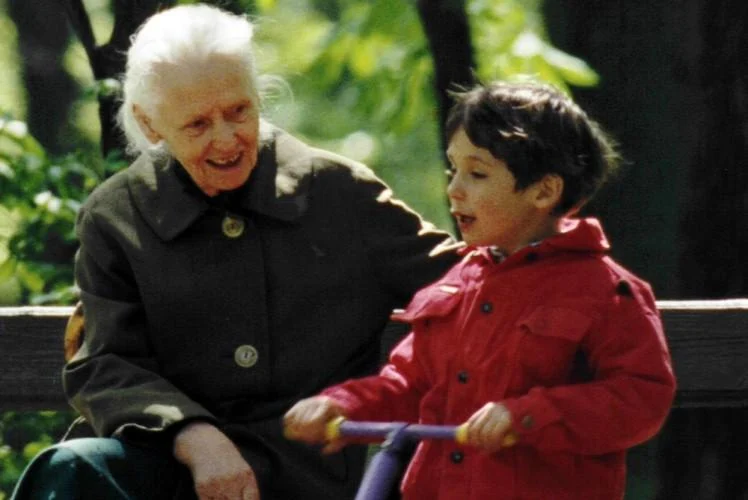


Marcel Lozinski: Anything can Happen

Review written by Allan Berg Nielsen for DOX Magazine 2002, now available at Modern Times Review.
In Anything Can Happen, Marcel Lozinski takes his six-year-old son to the park and asks him to ride around on his push scooter and occasionally stop at the benches and start talking with whomever – mainly elderly persons – is sitting there. The film crew follow him around recording the interactions from a great distance without being seen. Six-year-old Tomek is equipped with a small, wireless microphone and has received general instructions as to what he should do and what he should talk with the people about. Otherwise the boy improvises the conversations.
One smiles and laughs during these all told nineteen conversations that in their childlike wisdom wonderfully cover many serious human problems. This is first time I have ever seen the hidden camera technique used for anything but making the participants look ridiculous to the audience. This film does exactly the opposite: it reconstructs personal dignity.
It starts with a refusal. The young main character – easy to spot in his red jacket – has to give up and continue riding his push scooter along the footpaths in the park. Between every bench encounter, he is accompanied by a Strauss waltz on the soundtrack as he rushes along, giving the viewer a few seconds to think about what has just been said. The first, however, is the rejected advance.
The next person in the series lets the child talk, but does not give him seriousness and truth in return. Wants to playfully tease him instead: “My name is Don Juan,” he answers when the boy asks. This arouses wonder as it sounds French to the boy, who is unfamiliar with the famous seducer. But he accepts it as a reply. “My name is Tomek Lozinski,” he doesn’t try to conceal anything by contrast. I am who I am. The son of a famous filmmaker. Currently making a scene in his next film. This is the world of candour and reality. This is how we use films here.
The introduction continues in the fourth conversation. Though Tomek doesn’t know who Don Juan is, he is quite adept at flattering a woman: “You are very elegant,” he says to an old, well-dressed lady, and she instructs him in her technique of how to match the colours of her outfits.
The ingenious dialogue – which must have been fashioned during the editing of many metres of footage from the nine days of improvised shootings – continues embroidering in its own Socratic style. There are nineteen conversations in all on being a child and an adult, on the war, on the length of life, on love, divorce, sickness, poverty, money, sorrow and death.
In the nineteenth conversation, an old man describes the sorrow he feels over the death of his wife. And about the significance of her memory. He still feels he is together with his beloved in the rooms at home, and Tomek acknowledges that his mother felt the same way, when grandfather died. And the little boy quiets Death, “If someone dies, it doesn’t mean you will never see her again. Perhaps Death will stop,” – and he explains by holding up his flat hand in a stopping gesture – “and life will return. It might happen!” Anything can happen.
Poland, 1995.